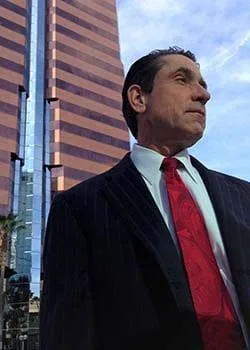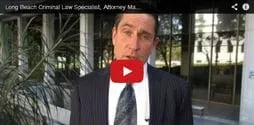New Criminal Laws for 2021
New criminal laws in 2021 include laws prohibiting racial discrimination by prosecutors and in jury selection. Juvenile laws were reformed and juvenile prisons will be phased out. Police choke holds have been outlawed. Shortened probation terms and diversion continue the trend of easing the effects of criminal convictions. What follows is a brief overview of those and other California criminal laws taking effect in 2021 by Long Beach criminal law specialist, attorney Matthew Kaestner.
PEACE OFFICERS AND THE USE OF FORCE
New Government Code sec. 57286 prohibits the use of choke holds (i.e. pressure to a person’s windpipe) and carotid holds (pressure to slow the flow of blood to the brain) by law enforcement.
Government Code sec. 12525.3 now requires the Attorney General to investigate fatal police shootings of unarmed civilians and creates a new division within the Department of Justice to review use-of-force policies and make recommendations. Starting on July 1, 2023, the Attorney General will operate a Police Practices Division to review deadly force policies and forward recommendations to law enforcement agencies
RACIAL JUSTICE
Penal Code sec. 745, the California Racial Justice Act, makes it possible for persons charged or convicted of a crime to challenge racial bias in their case. A showing that racial bias played a role in the case can result in a new trial or sentence.
Re-written Code of Civil Procedure section 231.7 now impacts jury selection including in criminal cases. It prohibits a party from using a peremptory challenge to remove a prospective juror on the basis of the juror’s real or perceived race, ethnicity, gender, gender identity, sexual orientation, national origin, or religious affiliation. Many neutral reasons for excusing a juror are now presumed to be unlawful and subject to challenge. The new law allows the defense or prosecution to challenge the use of a peremptory challenge based on these criteria, and requires the party exercising the peremptory challenge to state race neutral reasons for exercising the peremptory challenge.
In 1978, the California Supreme Court decided the “Wheeler” case that ruled it unconstitutional for the government to excuse jurors because of their race. Eight years later, the United States Supreme Court finally adopted the same rule in the “Batson” case. Subsequent case law extended the rule to include challenges based on ethnicity, gender, and sexual orientation. Likewise, challenges to jurors by the defense were also limited. Code of Civil Procedure section 231.7 codifies these constitutional based protections to prevent a member of a protected class from being excused as a juror in a criminal case for virtually any reason, including, sleeping during jury selection, inability to understand English, hostility to law enforcement, etc. unless the attorney making the challenge can show by clear and convincing evidence the exclusion was not based on a protected characteristic.
FALSE 911 CALLS AS HATE CRIME
Penal Code sec. 6534, California’s anti-Karen law, criminalizes making a false 911 call based on someone’s race, ethnic background, gender, religion, or sexual orientation. It is a hate crime and a misdemeanor. Additionally, the new law allows the victim to file a lawsuit against the person who made the false 911 call.
FELONY AND MISDEMEANOR PROBATION
New Penal Code sec. 1203a reduces the maximum length of probation to one year for misdemeanor offenses (unless the statute provides otherwise) and two years for felony offenses, with some exceptions. (Penal Code sec. 1203.1) Old law allowed a maximum term of probation of up to five years for felony offenses and three years for misdemeanor offenses (5 year probation for child abuse and DUIs with priors)
PARTICIPANTS IN FIRE CAMP/CCC
New Penal Code sec. 1203.4(b) allows someone convicted of most felonies except certain violent and sex offenses to petition to withdraw their plea and earn a dismissal and early termination of probation after successful completion of California Conservation Camp or “hand crew” (fire camp).
LAWYER/CLIENT JAIL CALLS
Under prior law, an incarcerated person was permitted to make a confidential cal to their attorney only as approved on a case-by-case basis by the institution. Under new Penal Code sec. 5058.7, confidential calls are to be approved of at least 30 minutes once per month, per case.
MISDEMEANOR DIVERSION
Penal Code sections 1000.95/.96/.97 now allow a judge to offer misdemeanor diversion to a defendant—over the objection of a prosecuting attorney. Upon completion of all required terms during the diversion, the action will be dismissed. The arrest upon which the prosecution was based would be expunged.
VOTING RIGHTS FOR FELONS
California Voters also passed Proposition 17 which allowed restored voting rights to persons who were on parole.
HYPODERMIC NEEDLES AN DSYRINGES
As of January 1, 2021, Business and Professions Code section 426 outlawing the fraudulent obtaining of a syringe or using it for other than an authorized use, is repealed.
JUVENILE JUSTICE
Amended Welfare and Institutions Code sec. 625.6 requires that juveniles 17 years old and younger must be allowed to consult with counsel prior to waiving their Miranda rights and being interviewed. However, a violation of this law does not automatically result in the suppression of the minor’s statement.
Starting Jan. 1, kids who are acting out in school cannot be referred to probation programs or become a ward of the court. Instead, they'll be referred to community support services. Starting in July, 2021, the state will be phasing out juvenile prisons.
Long Beach criminal lawyer, Matthew Kaestner, brings over 35 years of experience to the defense of every criminal case he takes. Whether you find yourself or a loved one on the wrong side of a new law or an old one, attorney Kaestner is available to take your call, listen to your unique situation, and share his expert advice. He can be reached directly at (562) 437-0200.




